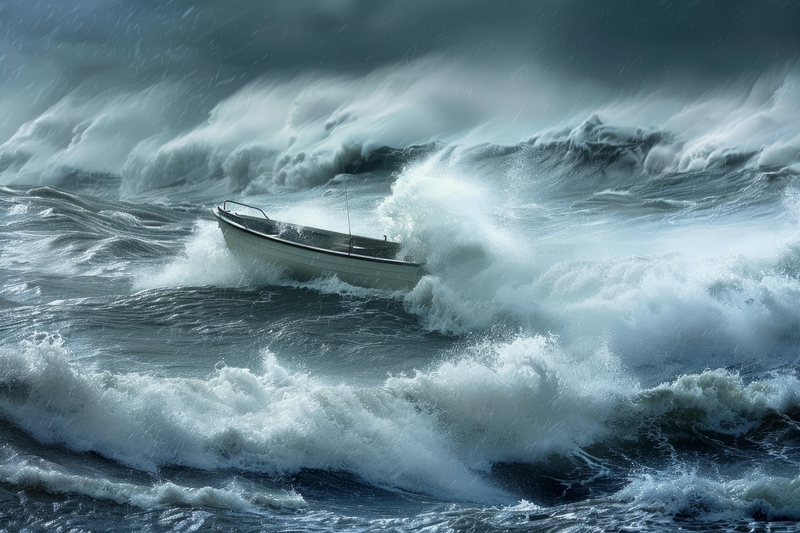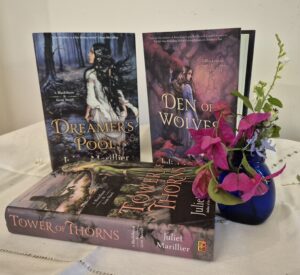
When I sat down to write this post, I started by checking my definitions. The first definition the search engine brought up for turbulent was this: ‘characterized by conflict, disorder, or confusion; not stable or calm.’ Apt for the world of today? Most certainly. The second definition related specifically to air or water: ‘moving unsteadily or violently’. That is appropriate right now in my part of the world, where a storm is blowing in from the ocean, with wild winds and heavy rain making their presence known outside my study window, not to mention the booming thunderclaps that make my little dog tremble with fear, while her stone-deaf brother sleeps through it all. Storm sounds do make a change from the buzz and screech of power tools outside that same window, where my neighbour and his friends are working almost daily on the gradual restoration of a neglected old house. A house where a man died a lonely death. I’m surrounded by stories here.
As the rain pelts down outside, I’ve been writing a scene in which a character risks his life to rescue crew members from a sinking boat, with the assistance of porpoises. There is indeed turbulence, both in the water and in the mind and body of the rescuer, not to speak of those whose lives are in jeopardy. In a different scene, a character uses a forest pool for scrying (seeking wisdom in visions) and sees snatches of the boat rescue on the water’s surface. She knows the rescuer, who is far away. Finding the deeper meaning in such visions requires calmness of mind. That calm may be hard to find if you’ve just seen someone you care about on the verge of drowning. So there’s inner turbulence for this character also.
In many earth-based faiths the elements of earth, air, fire and water play a part in ritual practice, and are significant in the way we view the world and our fellow creatures. Water, for instance, can both life-giving and, in times of storm or flood, destructive, as shown in traditional stories from many parts of the world. Perhaps, in our writing, we draw on both the peaceful and the turbulent. We may find that dichotomy in the world beyond the window and also in ourselves.
Are my choices as a writer influenced by the world outside my window? Of course they are, even though I’m writing a fantasy novel set in a far-off place, in an earlier time, combining real world elements with pure invention. Everything in our lives is fuel for storytelling. The world outside our window, and the wider world beyond, is almost certain to play some part in what we write and how we do it. Even if your characters are not human, it’s your observation of human (or animal) behaviour that helps you shape them into something real and compelling on the page. A writer may choose to set aside the big issues confronting the world right now, and write a story intended solely to spread good cheer, to divert and entertain the reader, to provide rest for the stressed-out brain or solace for the wounded spirit. In my own dark times I read stories like that and I find them as comforting as, say, a warm bath on a chilly winter day. Or the writer may dive straight into the turbulent water and grapple with the monsters. What might it mean, I wonder, to write like water? You might capture the stillness of that forest pond in the eyes of a character who listens more than they speak; someone with inner depths. You might show the tempestuous waves and capricious tides through the daily life of a community under stress, or in the unpredicable moods of an orator whose words seem to mesmerise an audience. You might show the steady flow of a river in the lives of folk whose role is to serve, to be there for others.
Here in Western Australia, the late winter rain is a blessing. Long may it last, to give our surviving trees some hope of living through another of those extended, baking summers that will almost certainly become the new norm. Meanwhile the world is indeed turbulent around us. No need for me to list here the crises old and new, or the continuing struggle of well-meaning people to find sollutions. Here and there, we see a ray of hope for the future. Cherish those, people. Notice and value the small good things. Put some of them in your writing. They are precious signs of hope in a world whose stark realities can at times seem overwhelming, like the great wave that towers over the lone swimmer. As writers, as storytellers, we have the power of our words. We have a golden opportunity to spread that hope. Not in contrived happy endings; not in implausibly positive stories. We’d soon be bored by those. As a reader, I am happy if the story ends on a note of hope, however slight; or if the protagonists learn something of value to take forward with them. We see the characters sail (or swim) out of the turbulence into calmer waters, aware they may need to brave the storm again. Perhaps what they have learned is resilience.
Image credit: Image credit: ID 325547431 © Ylivdesign | Dreamstime.com
This post first appeared on Writer Unboxed, a shared blog about the craft and business of writing, and a wonderful source of information about all things writing (and reading) related.




